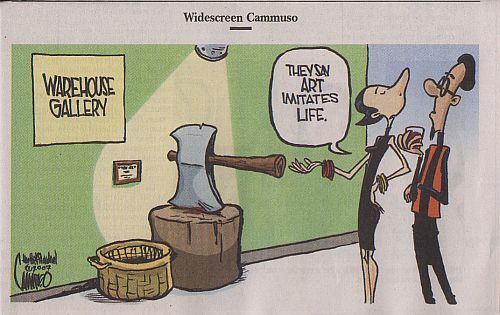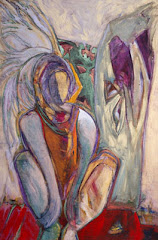 This is the World's First Camera!!
This is the World's First Camera!!Viewing the artwork of Aziz, Cucher, and Keith Cottingham was very interesting. These images represent the same idea of the distorted body image that the world is compelled to conform to. It’s just so easy, you see it and you want to believe it. You want to become it. If they can, then why can’t I? Well, unfortunately these images aren’t realistic. However, they have men and women, young and old, striving to reach a goal that is impossible. It reminds me of the Barbie theory…it would be impossible for a woman to be proportionally alike to Barbie. She wouldn’t be able to live. So, why is it that distorting images is so widely accepted and prevalent in today’s society?


Today, the internet plays a significant role in nearly everything that individuals do. The internet is like the masks that Aziz and Cutcher have created for the individuals in the images. They have no face, just as with internet communication. We are losing our sense of reality and personal contact and being replaced with the computer screen that billions of individuals sit in front of each day. With technology, comes facelessness, just like the people in the series are subjected to. The more reliant people become on these false ideals and faceless communication, the easier it becomes to give up the right to your own identity. The identity of the person behind the text on your screen is merely an idea, when in reality it could be anyone. Do you want to be the words behind the screen or the face that thought them? Are you willing to give up your identity? I believe this is the most powerful message that is being sent. If we allow such things to rule our lives, we become extinct in a way. We lose our right to self. Is that something you are willing to live without? I personally am NOT. I think the message they are trying to send is that we should love the things we have and embrace them because those "flaws" are what make us, US. I am not saying technology is a bad thing. I love the things it allows. Despite that, it does not need to replace who we are. So next time you strive to look like the girl in the magazine, take a step back and ask yourself what you are willing to sacrifice to become that person, because the steps required to become an imaginary figure will be draining, costly, and never-ending since the end result is a figment of the imagination; someone’s idea of perfection that was so perfectly manipulated with several clicks of the mouse. Do you really want to be the person who lives forever behind the screen or rather, the person who embraces the world and the “flaws” that they were gifted with?
















2 comments:
Hi Mandy,
This is a terrific post. Good for you for thinking critically about the ideas from the images and the learning unit and applying them to your own experiences.
Despite all the negative effects of photographic images on viewers today, I too could not imagine my life without photography!
Michelle
Mandy-
I loved your post! It really made me think! Thanks for giving me perspective! Keep up the good work:)
Natasha
P.S. I love your page:) It is so adorable!
Post a Comment